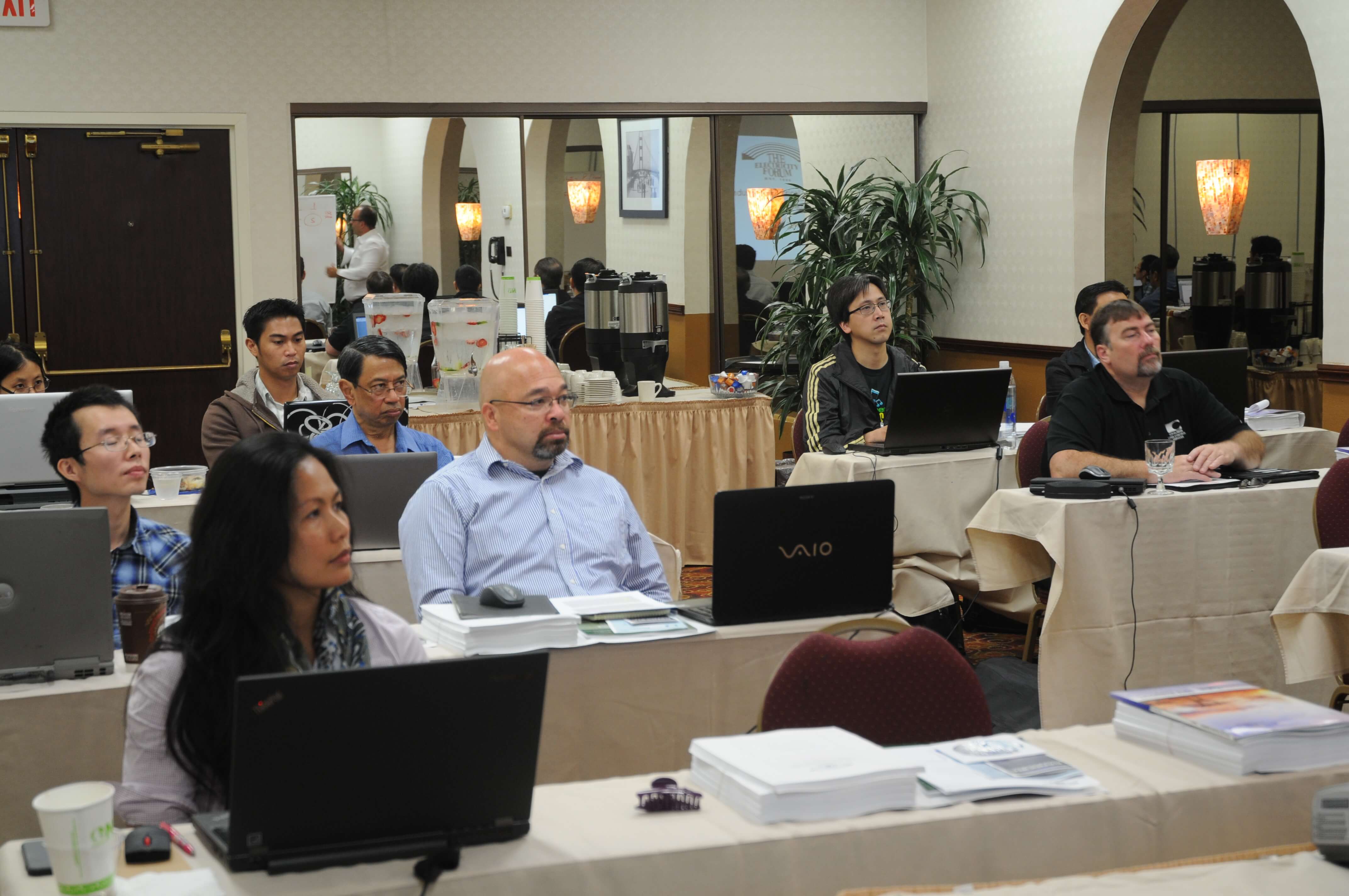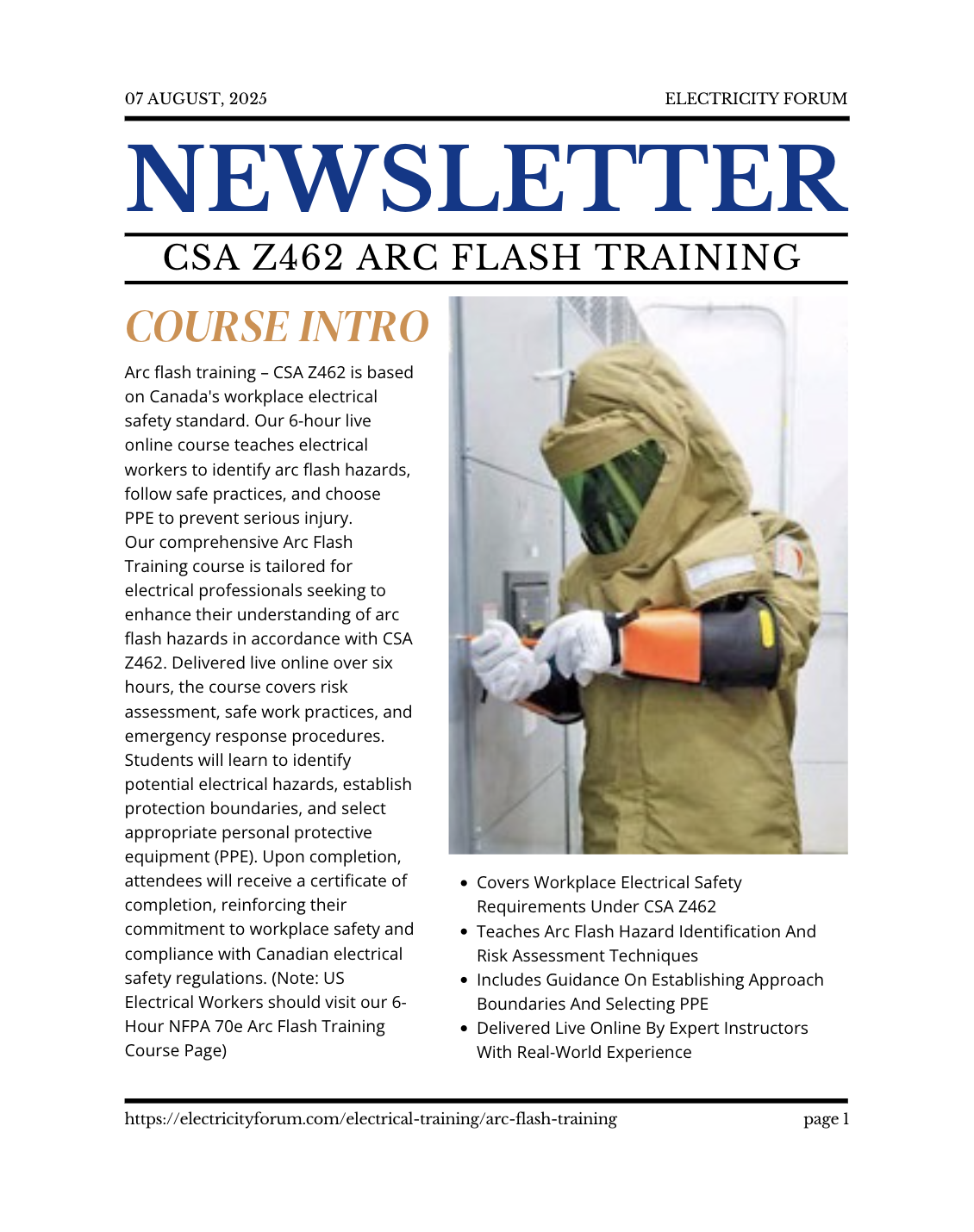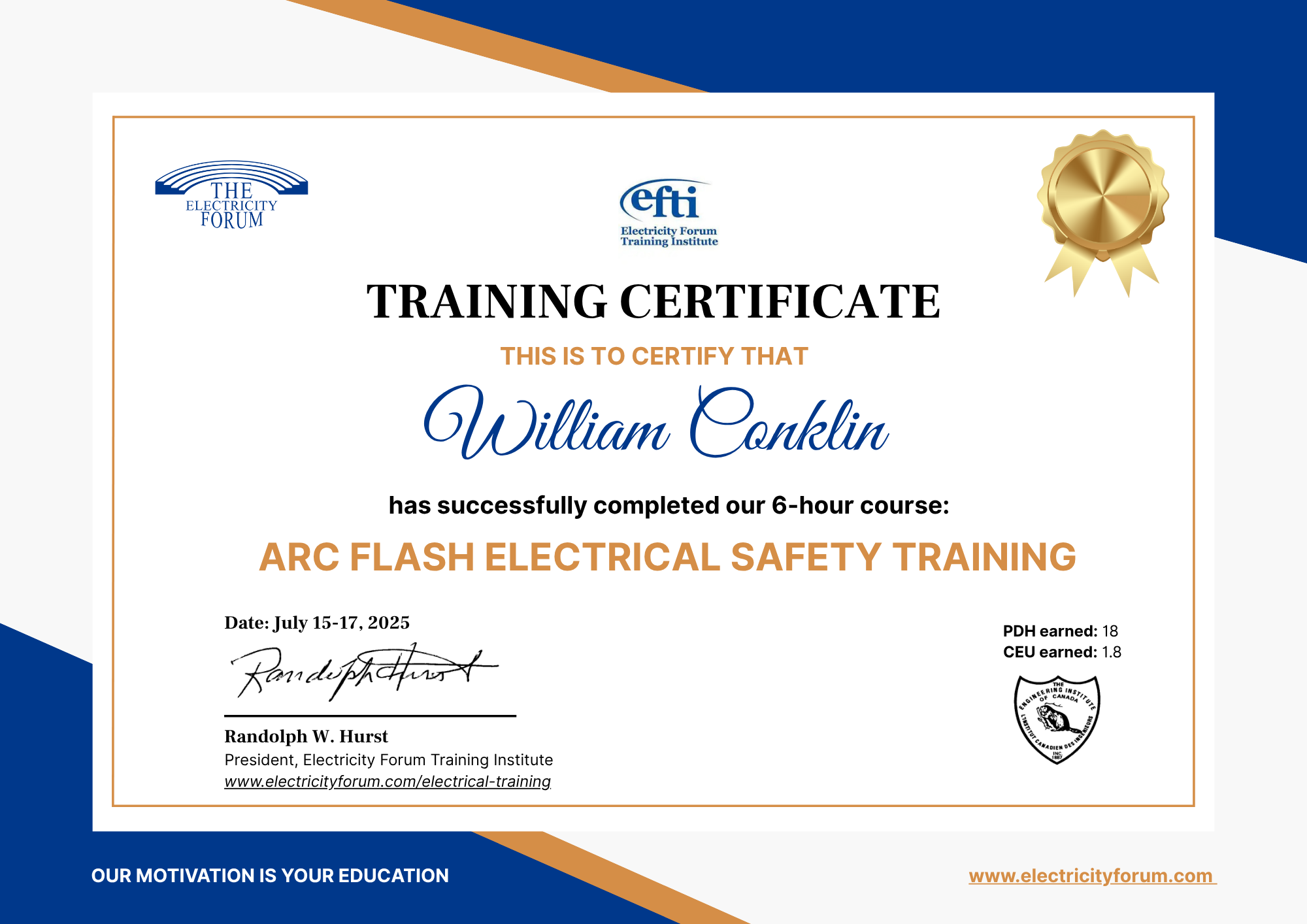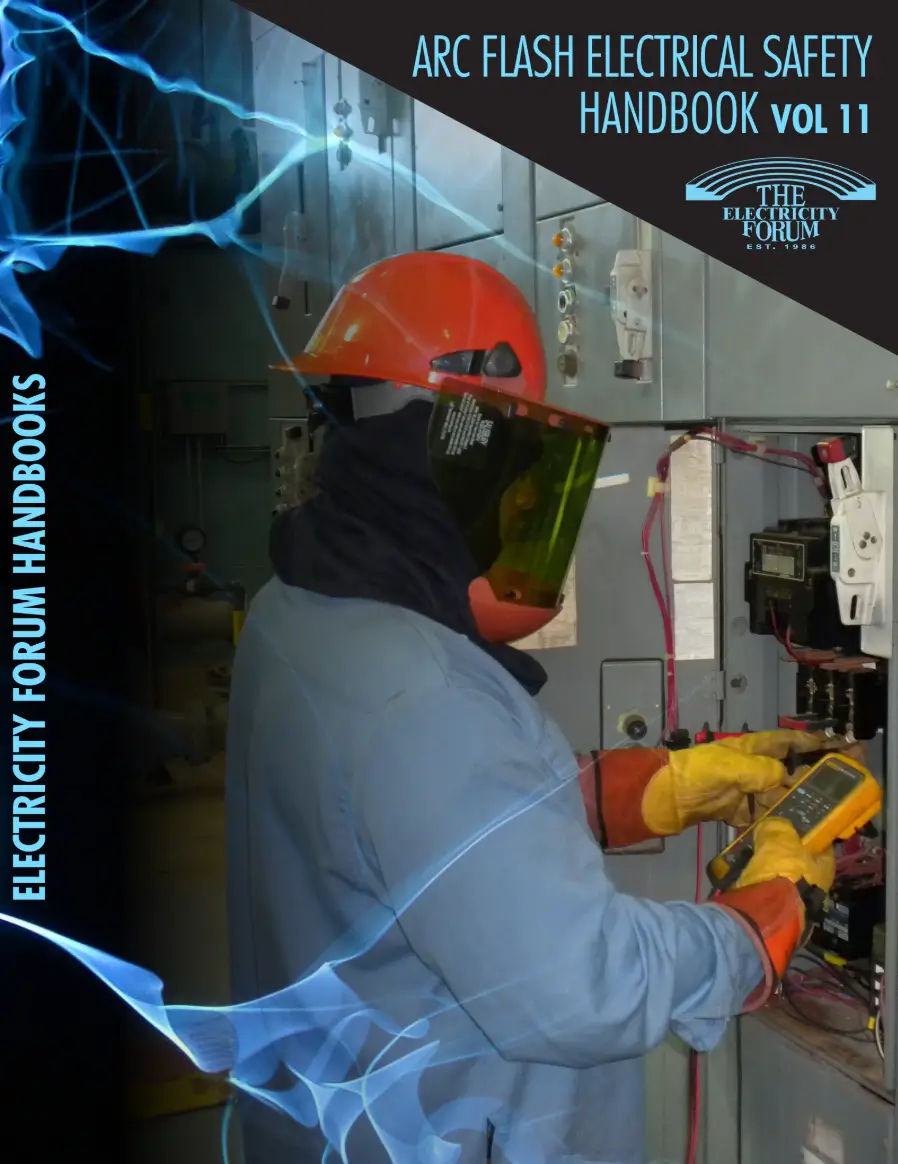NFPA 70e Arc Flash Training
Our 12-Hour combined NFPA 70e Arc Flash Training and High Voltage Electrical Safety live online instructor-led course introduces front line qualified electrical workers to the electrical safety regulations found in NFPA 70E and explains the relationship between OSHA and NFPA 70E, the course moves through the standard, article by article, highlighting the important points in each.
NFPA 70E Training
High Voltage Electrical Safety Training
Our NFPA 70e Arc Flash Training course is designed to help companies fulfill requirements of OSHA 29 CFR Part 1910, Subpart S Electrical and NFPA 70E® “Standard for Electrical Safety in the Workplace,” which requires this type of instructor-led training for anyone working with electrically energized equipment. This course includes changes in the latest version of NFPA 70E.
is instructed by one of North America's leading experts on Arc Flash and Arc Blast Hazard Protection and Mitigation. He will present new content NOT covered in our previous Arc Flash training courses and report on recent code revisions from NEC and NFPA, and the National Electrical Code. We teach general electrical safety principles and train electrical professionals on how to best develop an effective electrical safety program. Between these two elements, there will be plenty of examples and exercises for delegates to follow and then take back and apply to their electrical safety work practices.
Our NFPA 70e Arc Flash Training course will teach you how to:
- Define Short Circuits And Electrical Arcs.
- Understand Arc Flash Parameters.
- Determine Energy Released During A Short Circuit And Why You Need To Be Protected.
- Learn Techniques For Reducing Arc Flash Energy.
- Learn How To Protect Yourself And Those Around You From Electrical Hazards.
- Learn How To Select Proper Personal Protective Equipment (PPE) For The Right Environment.
Dangers such as shock, electrocution, and arc blast will always be present on the job, but proper training and safety strategies can minimize the likelihood of injuries and fatalities. NFPA 70E - Electrical Safety in the Workplace - covers the full range of electrical safety issues from work practices to maintenance, special equipment requirements, and installation. In fact, OSHA in the United States already bases its electrical safety mandates on the comprehensive information in this important Standard.
High Voltage Safety Training
This 6-Hour (one day course) live online instructor led course is designed for electrical maintenance personnel responsible for Medium Voltage/High Voltage electrical systems, supervisory and health and safety professionals who are responsible for overseeing high voltage electrical work.
Dynamic and highly concentrated, this High Voltage Safety Training course places maximum emphasis on safety when working on or near energized electrical equipment.
Students will learn the damage electricity can cause to the human body and understand the basic principles of safety in normal and abnormal conditions. They will also learn how to provide assistance in determining severity of potential exposure to Medium Voltage/High Votlage arc flash hazards, planning safe work practices and selecting proper personal protective equipment.
During this High Voltage Safety Training course you will learn to recognize and avoid electric shock in unsafe work areas. You will also learn correct approach distances. Upon completion, you will have a better understanding of proper voltage rated tools and the use of proper personal protection equipment. By educating workers on issues central to the safe performance of their everyday jobs, loss of life or serious injuries can be reduced and eliminated from your workplace. Your safety and the safety of your coworkers depend on it!
Review National and Provincial Medium Voltage/High Voltage electrical safety standards and regulations.
This One-Day High Voltage Safety Training Course Will Focus On The Following Areas:
- Job Briefing Requirements
- Hazardous Energy Control (Lockout/Tagout)
- Switching Procedures
- Clearance Procedures
- Personal Protective Equipment (PPE)
- Flame Resistant (FR) Clothing
- Rubber Protective Equipment
- Live-Line Tools & Testing Requirements
- Working On Or Near Exposed Lines
- De-Energizing Lines And Equipment
- Personal Protective Grounding
- Substation Safety
- Special Conditions
- Capacitors
- Current Transformers
- Potential Transformer Hazards
- Fuse/Relay Coordination

















